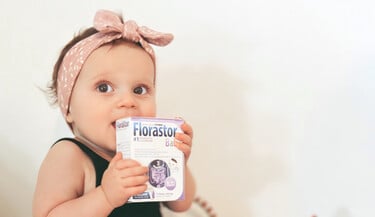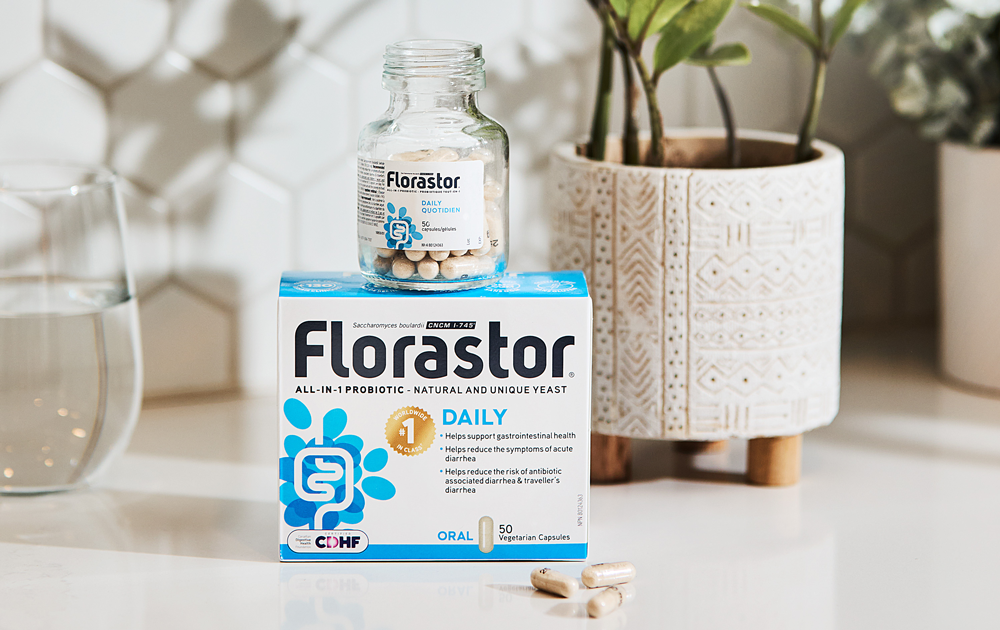Diarrhea is characterized by an increase in the frequency and looseness of stools with the children in North America experiencing diarrhea an average of twice annually, as per the American College Of Gastroenterology.
Acute diarrhea in children and babies is most frequently caused by Acute Gastroenteritis, which is generally defined as 3 or more stools in a 24 hour period generally lasting a week or less.
What are the causes of acute diarrhea?
Acute diarrhea can be caused by :
- Viral Infection - such as rotaviruses, noroviruses and adenoviruses
- Bacterial/Pathogenic Infection – such as E.coli, C. difficile, C. jejuni, salmonella etc
- Recent Antibiotic use
Exposure to infectious bacteria and viruses may be more common in foreign countries or in gathering places like day care, school and big family gatherings.
Poor hand-washing or other sanitation practices could also increase a child’s exposure risk.
What are the consequences of acute diarrhea?
In addition to changes in bowel regularity and consistency, it is possible that fever, pain, nausea and vomiting could also be present.
Dehydration is a major short-term concern.
Signs include if a child’s urine output decreases, they appear more fussy/fatigued and/or there is indication of dryness around the lips, mouth and eyes (no tears when crying).
How does the young microbiome work?
There is growing scientific interest around the importance of the young microbiome and how it shapes a child’s long-term health.
A strong, balanced microbiome may decrease a child’s future risk of common health concerns like asthma and various allergies.
Antibiotic use may represent essential treatment option in a variety of pediatric contexts, but it also can negatively influence a child’s microbiome.
The use of probiotics like Florastor has a role to play in minimizing the negative effects of antibiotic use while directly benefitting acute diarrhea in babies and children.
How to reduce acute diarrhea in babies and children?
Florastor contains the unique probiotic strain Saccharomyces boulardii CNCM I-745.
In 2021 the Nutrients journal conducted a systematic review and meta-analysis looking at the effectiveness of various probiotics for managing acute diarrhea in children.
They concluded that Saccharomyces boulardii was likely the most effective probiotic for this purpose, identifying that it was most effective at:
1. Reducing the duration of diarrhea
2. Reduced the risk of the diarrhea lasting >2 days
This sentiment is supported by a 2021 publication out of the Journal Of Pediatric Gastroenterology and Nutrition which considered Saccharomyces boulardii to be effective at reducing both the duration and severity of acute diarrhea and supported its use as a complimentary treatment to routine rehydration strategies.
The amount required to achieve this benefit is considered to be 250-750 mg per day over a 5-7 day period with administration most effective within 72 hours of the first onset of symptoms.
Florastor Baby contains 14 sachets of S. Boulardii CNCM I-745 each containing 250 mg of probiotics, meaning the optimal usage would be 1-3 sachets per day used over a 5-7 day period.
Final thoughts
While final decisions around probiotic use should be made by caregivers in conjunction with the support of a healthcare professional, the unique S. boulardii probiotic strain found exclusively within Florastor has demonstrated efficacy to reduces the symptoms and severity of diarrhea in babies and children.

 Andy De Santis,
Andy De Santis,


